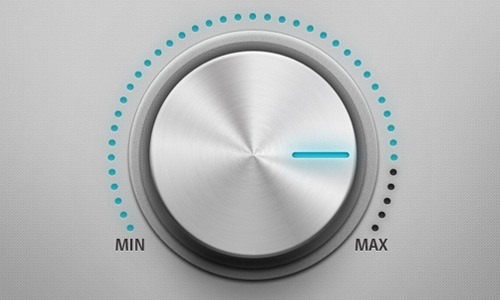Switches or Dials
In the psychological world, there is an area of diagnosis called “personality disorders.” These include Narcissism, Borderline, Avoidant, Dependent, Paranoid, etc. There are 10 of three types (clusters).
The American Psychiatric Association describes Personality disorders as “ways of thinking, feeling and behaving that deviates from the expectations of the culture, causes distress or problems functioning, and lasts over time.”
The pattern includes at least two of these:
- Way of thinking about oneself and others
- Way of responding emotionally
- Way of relating to other people
- Way of controlling one’s behavior
I have done extensive work and writing on one of them, Narcissism. And, each year when I do training for future ministers, I teach about Borderline. Hopefully, I will be able to write about that material soon, as well.
There is something I dislike about Psychological diagnosis – and that is the false impression of diagnosis speaking identity into people. At most, any diagnosis is a descriptor, not an identifier… and really all that a diagnosis is, is a shorthand for internal communication.
Medical professionals and insurance companies out there, please refrain from defining, cursing, or incarcerating someone with a diagnosis – psychological or otherwise.

Imagine a group of Paleontologists who get tired of saying “Hey, I found another one of those really big dinosaurs with big teeth, little front legs, really big hind legs…” So, they gave that dinosaur a name: T-Rex.
In the same way, mental health professionals got tired of saying “I saw another client today with a poor sense of identity and a sever fixation on abandonment and extreme emotional and relational responses…” and they gave that combination of traits a name: Borderline Personality Disorder.
Anyway, that was my two cents about diagnosis. They are nothing more than useful shorthand. No extra charge.
Many of us – heck, maybe all of us – have some traits from the lists. The most severe problems come when a single person has multiple of the traits. That is what a personality disorder is.
Pretty much every personality disorder shares a tendency that I think is worth all of us examining in our own lives.
Do we have dials or switches when it comes to our own emotional responses? What about in our relationships?
If you are all-in with a friendship until that person disappoints you, and then you are all out, you are engaging with a switch, not a dial. A switch is either off or on. A dial can be turned up or down incrementally.
If a family member hurts me, I can draw a slightly tighter boundary around the relationship… or I can just cut that person off and stop speaking to them. Dial. Switch.

Dials are generally healthier.
When I hire a new employee, certain that they are the perfect person for the job, I can get behind them, be excited about them… the switch fully in the “on” position. 100% positive.
What happens when it turns out they aren’t the perfect person for the job (because there is no such thing)? A person with a dial mentality can continue to support them at 90% or 70% positive. A person with a switch mentality is done.
Apply that to friendships and marriage.
I once read that we all marry an ideal person, but turn out to be married to a real person. In the end, we have divorce the ideal and stay married to the real, or we divorce the real and keep searching for the ideal.
But, there is more to come: part II
I like your explanation of personality disorders, it brings some clarity to it for me. I have wondered at times if I had a trait that could be labeled as a disorder, though I don’t feel like it’s a hinderance in my life, just something to be aware of or something I have to work a little harder at.
I have also wondered if personality disorders could be driven by demonic involvement (I wanted to say modern day demonic possession, but that seems extreme, maybe if it was a serial killer?); it just sounds like the enemy is at work trying to infiltrate our minds, cause anxiety and disorder, convince us not to care about others or to put ourselves first all the time. Sometimes I think the enemy would probably be happy knowing we think of these issues as a brain imbalance that just needs a therapist and medication, instead of needing God. Not to say real chemical imbalances don’t exist, though it definitely makes for a weak point for the enemy to use to their benefit. I don’t base this thought in any real research, just a thought that crossed my mind.
I do believe in an invisible but powerful Rebellion in the Spiritual World. I believe the agents of that rebellion, which we often call demons, are bent on our destruction… they hate us because they hate God who loves us. I think most often, they attack us or seek to influence us where we are weakest. Certainly where our tendencies toward personality disorders lie are weaknesses! I am sure they attack at those weak points to destroy our character – so I think our spiritual aspects and physical aspects and psychological aspects integrate into our lives in one big mishmash.
Love the dial and switches analogy.
Pingback: Let’s Talk About Voter Fraud – Chris Legg
Pingback: Switches or Dials – Part 2 | Chris Legg, LPC